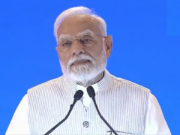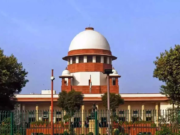
NEW DELHI: India may consider cutting its bonds sales this year aided by a higher cash balance, according to people familiar with the matter.
The government is looking at multiple options to utilize its surplus cash and if the response to bond buybacks doesn’t improve it may cut borrowings, they said, asking not to be identified as a final decision will be taken in the full budget after the national elections are over next month.
India plans to borrow 14.13 trillion rupees ($170 billion) in the financial year ending March 2025, according to the February interim budget. Any reduction may help push down bond yields amid India’s inclusion into a key global bond index.
The yield on benchmark 10-year bond was little changed at 7.09% on Tuesday.
Earlier this month, authorities surprised markets with a plan to repurchase bonds maturing in the current fiscal year. The buybacks, aimed at using the surplus cash and reducing interest costs, fell short of expectations as traders demanded higher prices, forcing the central bank to accept only a portion of the bids.
The government won’t be deliberately disruptive but it will protect its interest over those of bond investors, the people said, suggesting the Reserve Bank of India will be unwilling to offer lower yields in its third buyback of 600 billion rupees due on Tuesday.
A Finance Ministry spokesperson didn’t respond to a request seeking comment.
The government decides on repurchasing bonds based on its cash position and the auction is conducted by the RBI. Its cash balance has gone up due to several factors, including higher revenues and lower expenditure during elections. Last week, it also lowered short-term borrowings after a tepid response to debt buybacks.
Investors perceive a reduction in short-term bill issuance as a better alternative to buybacks, DBS Group Holdings Ltd. economist Radhika Rao wrote in a note. The government’s cash balance approached 3 trillion rupees around mid-May, keeping liquidity relatively tight, she said.
Read More: India T-Bill Issuance Cut Will Induce Steepening Impact: DBS
Even after the polls are over, the government may continue to have excess cash, aided by dividend from RBI, requiring it to revisit the borrowings, the people said.
India’s unexpected move to buy back bonds signaled the central bank is getting proactive in easing liquidity and may switch to a neutral interest-rate stance in its June policy, according to Citigroup Inc.
This is purely a government initiative to cut down its cash and the RBI is confident of managing liquidity using various other tools, the people said.
The government is looking at multiple options to utilize its surplus cash and if the response to bond buybacks doesn’t improve it may cut borrowings, they said, asking not to be identified as a final decision will be taken in the full budget after the national elections are over next month.
India plans to borrow 14.13 trillion rupees ($170 billion) in the financial year ending March 2025, according to the February interim budget. Any reduction may help push down bond yields amid India’s inclusion into a key global bond index.
The yield on benchmark 10-year bond was little changed at 7.09% on Tuesday.
Earlier this month, authorities surprised markets with a plan to repurchase bonds maturing in the current fiscal year. The buybacks, aimed at using the surplus cash and reducing interest costs, fell short of expectations as traders demanded higher prices, forcing the central bank to accept only a portion of the bids.
The government won’t be deliberately disruptive but it will protect its interest over those of bond investors, the people said, suggesting the Reserve Bank of India will be unwilling to offer lower yields in its third buyback of 600 billion rupees due on Tuesday.
A Finance Ministry spokesperson didn’t respond to a request seeking comment.
The government decides on repurchasing bonds based on its cash position and the auction is conducted by the RBI. Its cash balance has gone up due to several factors, including higher revenues and lower expenditure during elections. Last week, it also lowered short-term borrowings after a tepid response to debt buybacks.
Investors perceive a reduction in short-term bill issuance as a better alternative to buybacks, DBS Group Holdings Ltd. economist Radhika Rao wrote in a note. The government’s cash balance approached 3 trillion rupees around mid-May, keeping liquidity relatively tight, she said.
Read More: India T-Bill Issuance Cut Will Induce Steepening Impact: DBS
Even after the polls are over, the government may continue to have excess cash, aided by dividend from RBI, requiring it to revisit the borrowings, the people said.
India’s unexpected move to buy back bonds signaled the central bank is getting proactive in easing liquidity and may switch to a neutral interest-rate stance in its June policy, according to Citigroup Inc.
This is purely a government initiative to cut down its cash and the RBI is confident of managing liquidity using various other tools, the people said.





































